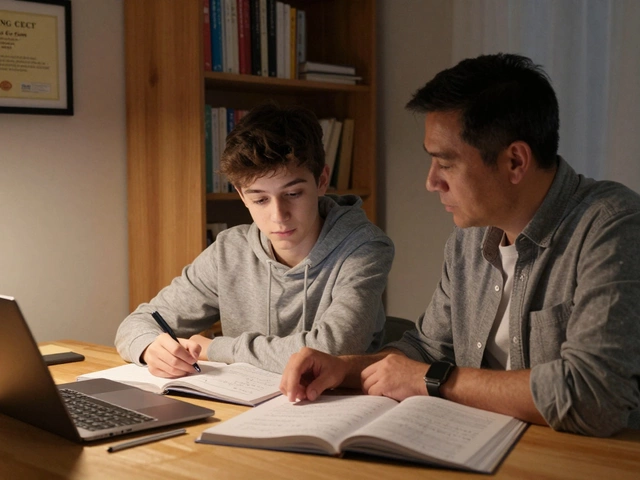GCSE Timetable: How to Build a Study Schedule That Works
Got a pile of GCSE subjects and no idea where to start? A solid timetable can be the difference between panic and confidence. Below you’ll find a plain‑talk guide to set up a schedule that matches your routine, keeps you motivated, and covers every topic before the big day.
Why a Timetable Matters
Without a plan you end up doing what feels easy at the moment – usually scrolling social media or binge‑watching. A timetable forces you to allocate time, so you stop guessing and start doing. It also shows you where you’re spending too much time and where you can afford a break. Most importantly, it turns a huge revision load into bite‑size chunks that are easier to handle.
Step‑by‑Step Timetable Builder
1. List every GCSE you’re taking. Write down each subject and the specific units you need to cover – for example, Biology: cells, genetics, ecology.
2. Note your exam dates. Put the date of each paper on a calendar. Seeing the order of exams helps you prioritise subjects that come first.
3. Break the syllabus into weekly goals. Take a subject and split it into 2‑hour blocks. If you have 10 weeks before the exam, aim to finish one unit each week. Adjust the size of the blocks if a topic feels harder.
4. Slot the blocks into real time. Look at your weekly routine – school hours, homework, sports, part‑time work, sleep. Fill in study slots when you’re most alert, typically after school or early evenings. Keep each slot to 45‑60 minutes with a 5‑10 minute break in between.
5. Add review days. Every Friday (or any day that works) set aside 30 minutes per subject to recap what you learned that week. Repetition cements memory.
6. Build in flexibility. Life throws curveballs – a sudden test, a family event. Leave a “buffer” slot each week that you can move around. If you miss a session, use the buffer to catch up.
7. Track your progress. Use a simple spreadsheet or a printable grid. Mark each block as done, and note any topics that need extra work. Seeing green checks can boost motivation.
8. Keep it realistic. Don’t plan five hours of chemistry every night if you normally struggle to stay awake after dinner. Aim for consistency, not intensity.
9. Reward yourself. After a solid week, treat yourself – a movie night, a gaming session, or a walk outside. Rewards make the routine feel worth it.
When you follow these steps you’ll end up with a clear visual plan that tells you exactly what to study each day. The key is to start now, even if the first week looks a bit rough. As you get used to the rhythm, the timetable will feel natural and you’ll notice your confidence grow.
Need a quick start? Grab a piece of paper, write down your subjects, and fill in 2‑hour slots for the next seven days. That simple draft will highlight any gaps and give you a concrete next move.
Remember, a timetable is a tool, not a prison. If something isn’t working, tweak it. The goal is to keep moving forward without burning out. Good luck, and happy revising!






